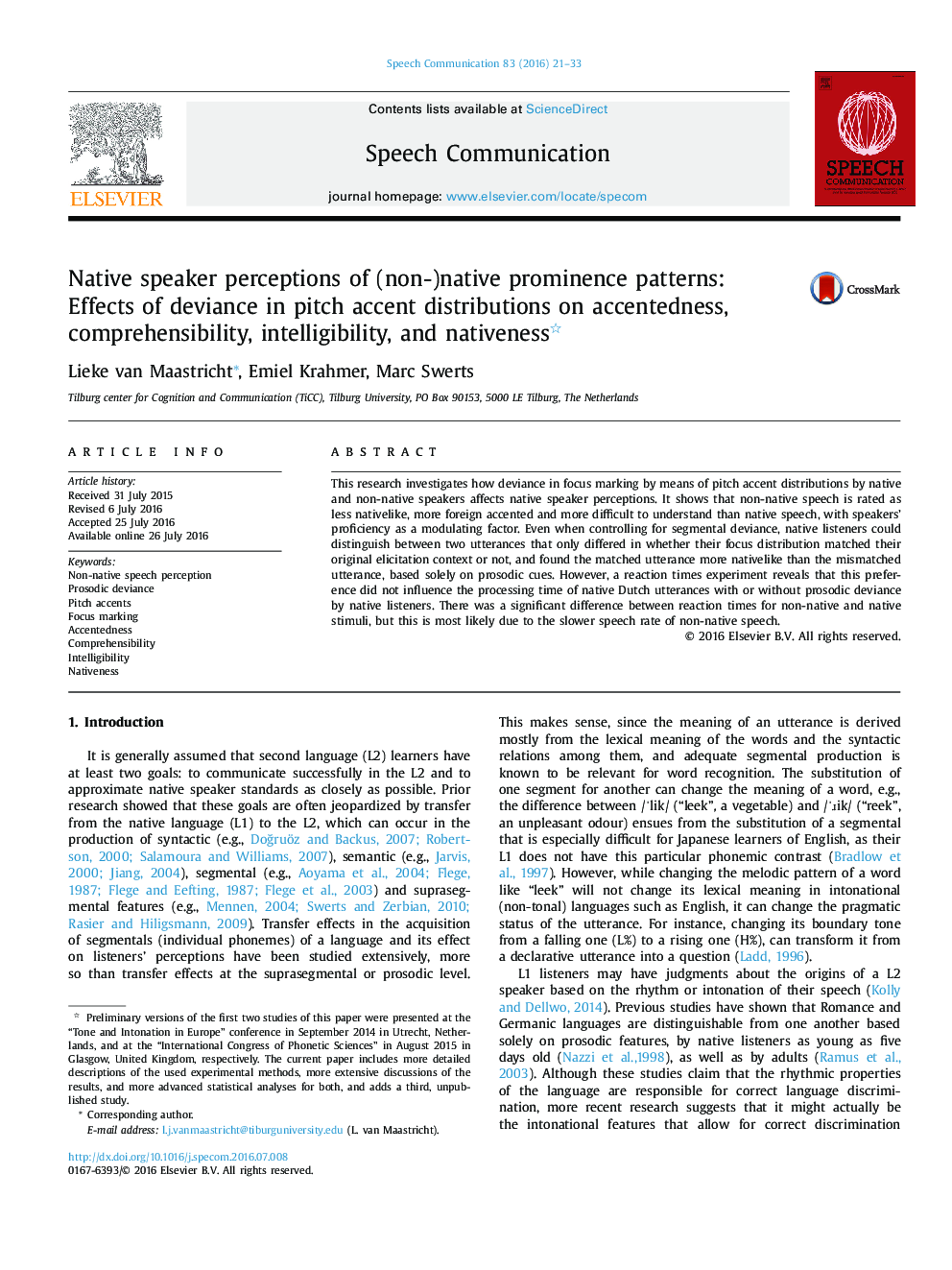| Article ID | Journal | Published Year | Pages | File Type |
|---|---|---|---|---|
| 568462 | Speech Communication | 2016 | 13 Pages |
•The proficiency of Spanish learners of Dutch affects perceptions by Dutch listeners.•They judge accentedness and nativeness more severely than comprehensibility, and can assess nativeness based solely on pitch accent distributions used to mark focus.•They process L2 stimuli slower than L1 stimuli, modulated by L2 proficiency, but process L1 stimuli with correct or incorrect pitch accent distributions equally fast.
This research investigates how deviance in focus marking by means of pitch accent distributions by native and non-native speakers affects native speaker perceptions. It shows that non-native speech is rated as less nativelike, more foreign accented and more difficult to understand than native speech, with speakers’ proficiency as a modulating factor. Even when controlling for segmental deviance, native listeners could distinguish between two utterances that only differed in whether their focus distribution matched their original elicitation context or not, and found the matched utterance more nativelike than the mismatched utterance, based solely on prosodic cues. However, a reaction times experiment reveals that this preference did not influence the processing time of native Dutch utterances with or without prosodic deviance by native listeners. There was a significant difference between reaction times for non-native and native stimuli, but this is most likely due to the slower speech rate of non-native speech.
